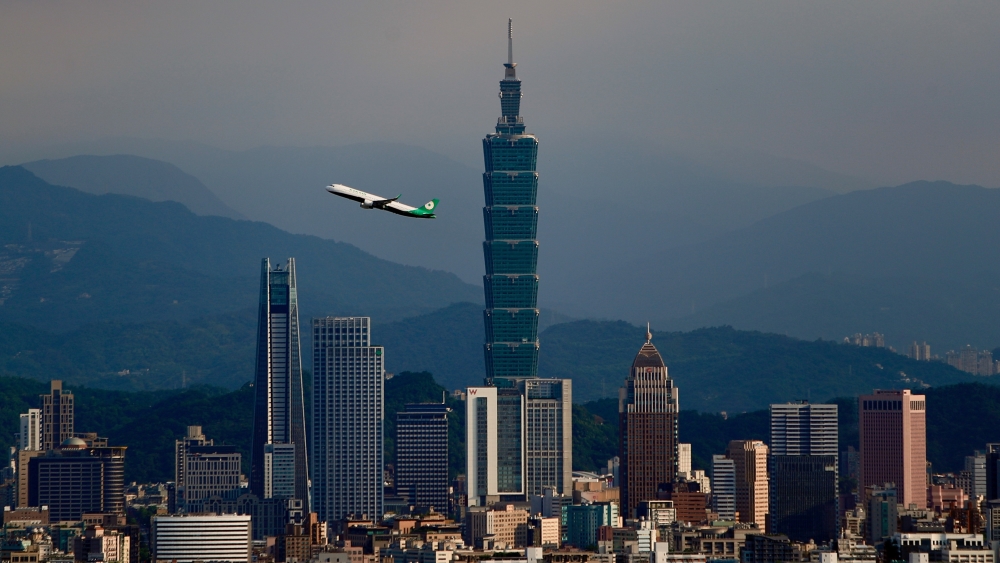TAICCABOSS
As Taiwan seeks for creative, industrial and political reasons to make a bigger mark for itself on the international stage, its Taiwan Creative Content Fest is diversifying, expanding and making greater efforts at cross-border outreach.
Homme Tsai, chair of industry support body TAICCA spoke outline the event’s strategy and novelties in a conversation with Variety.
What are the objectives of the Taiwan Creative Content Fest?
The TCCF is an international event for content licensing and project investment. Professionals from over 20 countries around the world gather in Taipei over 6 days to connect, learn and open up new business opportunities.
This year the event is divided into three sections: market, pitching and innovations. These encompass all verticals in the content industry: creation; production; and distribution and marketing.
TCCF also promotes licensing and co-production opportunities by matching global IP proposals with investors. In addition, the event will feature exhibitions and panels to foster the exchange of ideas and experiences among professionals in the industry, as well as connect Taiwanese talent with international resources.
The content industry, driven by the essence of human connection, recognizes that online interactions alone cannot replace the authenticity of real human engagement. TCCF is committed to revitalizing these crucial connections through physical exhibitions, emphasizing the irreplaceable value of personal interactions.
How has this year’s event evolved since last year’s edition?
In a pivotal move for this year’s event, TCCF has elevated its global outreach by securing the participation of internationally renowned organizations and corporations to curate the awards.
This strategic initiative aims to cast a wider net, attracting a diverse array of teams, including those from overseas. The objective is to facilitate transactions, cultivate investor interest, and generate a heightened level of engagement, thus creating a self-reinforcing cycle of positive interactions.
This year’s developments mark a significant milestone, setting TCCF apart from its previous three editions. The emphasis on genuine connections and international collaboration underscores the festival’s commitment to advancing the content industry.
As a market that closely follows Busan’s ACFM, Tokyo’s TIFFCOM and Los Angeles’ AFM what is TCCF offering that is different?
2023 TCCF Market is extended from 3 to 4 days. Although still with a focus on content and IP licensing, this year, it further expands by inviting companies and organizations from different sectors of the content industry, providing a one-stop solution for all professionals. The market seeks to be a space that facilitates new collaborations and promotes opportunities for international co-productions.
As the pandemic comes to an end, the global content industry is gradually reactivating, and buyers and sellers from all over the world are looking forward to meeting and networking once again. This is the largest TCCF market to date, with major media companies such as Japan’s Fuji TV, Hong Kong’s TVBI, and Singapore’s Mediacorp TV joining for the first time.
While FilMart, Busan ACFM, TIFFCOM, and Golden Horse primarily focus on selecting and showcasing Asian or Mandarin-speaking content through one-on-one meetings, TCCF Pitching has expanded its reach this year, for the first time, to include audiovisual projects from around the world. Additionally, we have invited a panel of international jurors to make the selections, ensuring the project’s global market potentials. These pitch proposals are presented through open pitch events, showing a diverse range of themes, topics, and talents, divided into four categories to enable buyers and investors to attend based on their business strategies and particular interests.
TCCF has also introduced a new ‘Story to Screen’ session looking into Taiwanese original IP with the potential to be adapted into audiovisual works. TCCF Pitching offers the participants an even more fulfilling experience.
What are Taiwan’s strengths as a content / entertainment industry hub? What is it doing well?
Taiwanese film and TV had been gaining recognition and popularity on the international stage, in my opinion, partly due to the popularity of OTT platforms. Which also accelerates its impact worldwide.
The industry had experienced notable success with the emergence of horror movie content, which drew lots of attention from the Japanese audience. We have received some co-production proposals from Japan.
Other themes, such as ‘BL,’ particularly in the realm of popular gender identity, had a significant presence in various Asian markets, including Japan, South Korea, Southeast Asia, and beyond.
What are the areas of weakness as a content/ entertainment industry hub that Taiwan needs to improve? (e.g. Project funding, corporate funding, lack of world scale production companies. on-screen talent with global reputations. Etc.)
We believe there is still room for improvement. Therefore, TAICCA hopes to take advantage of international co-production and collaboration opportunities to engage in more talent training and exchanges with foreign partners. We aim to further enhance our foundational skills, learn from international experiences, adopt new technologies, and expand our market presence to raise the quality of our film and television content.




